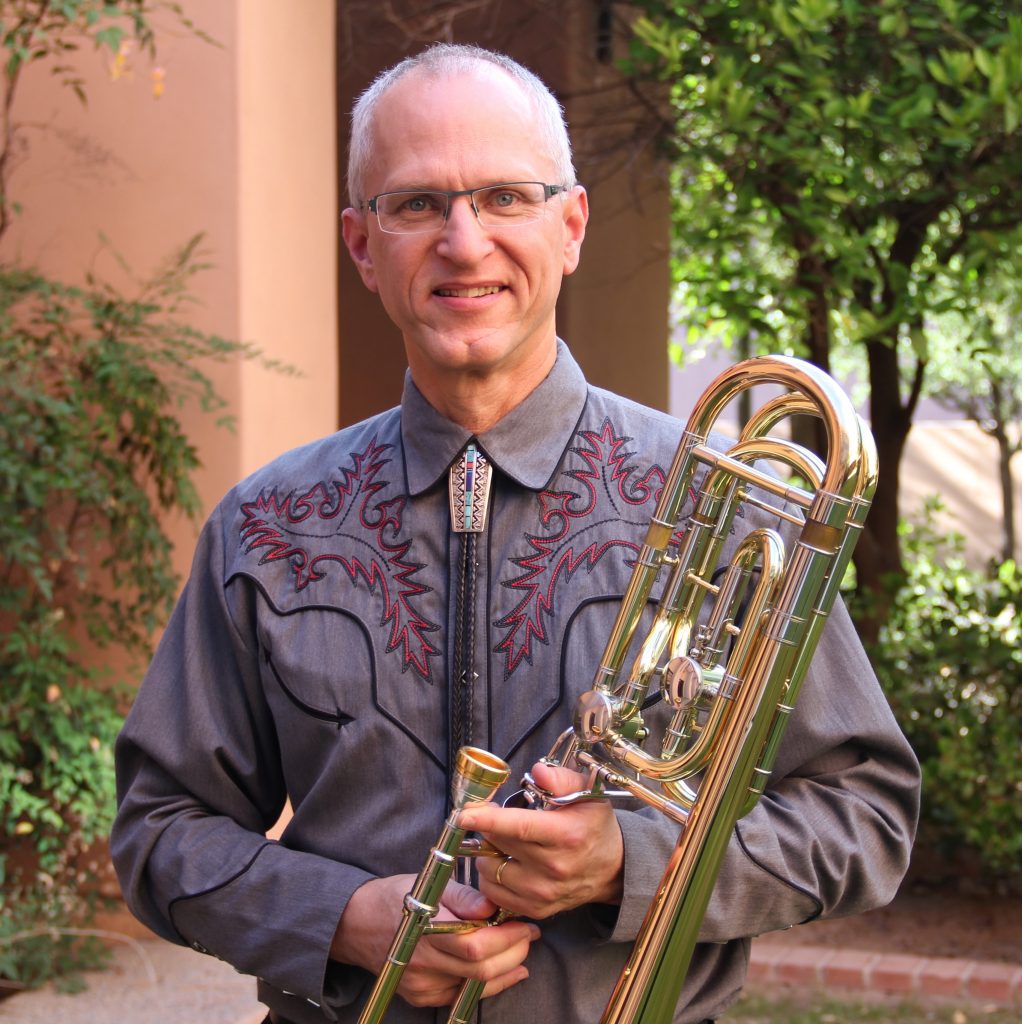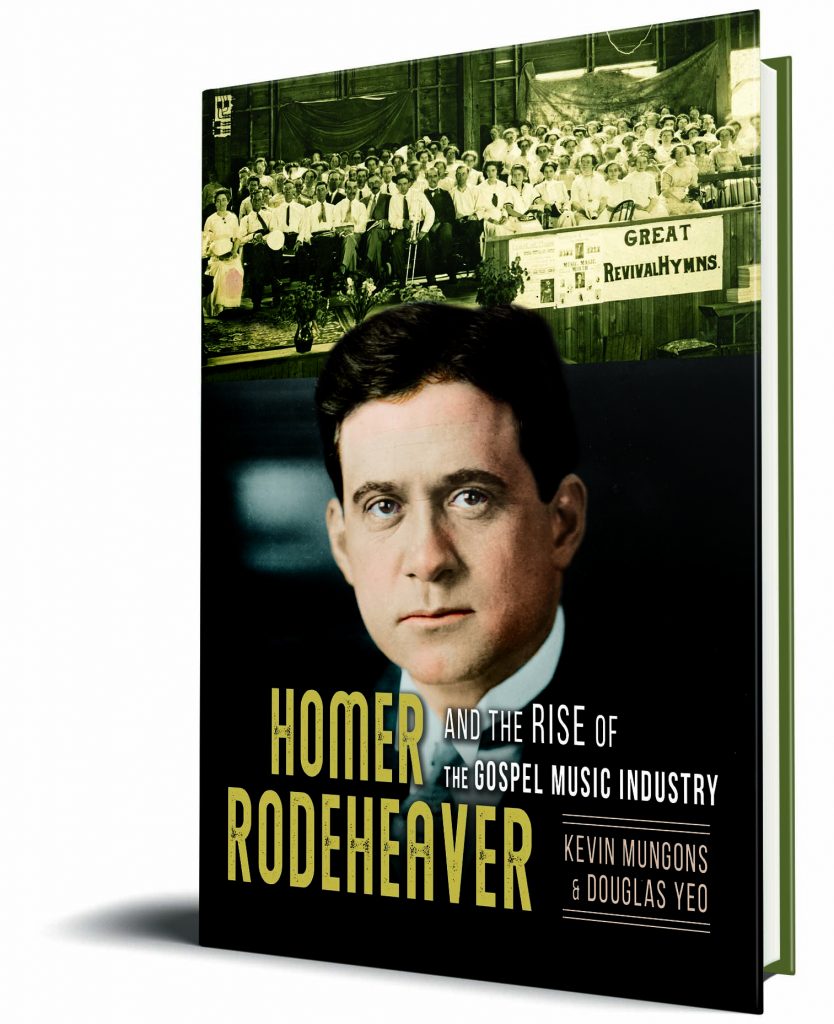We recently talked to co-authors Kevin Mungons and Douglas Yeo about their new book, Homer Rodeheaver and the Rise of the Gospel Music Industry.
Q: Why did you decide to write this book—and how did you meet?
Both of us play trombone, so we naturally took interest in Homer Rodeheaver, who was Billy Sunday’s trombone-playing song leader. Doug had a long career as bass trombonist with the Boston Symphony; now he spends his days researching, writing, and teaching trombone at Wheaton College. Kevin is a Chicago-based writer and editor who has served many years as a church musician. We were introduced by a kindly archivist who said, “You guys are researching the same subject and asking the same questions—you should talk to each other.”
Q: Who were your biggest influences?
Each other! We’ve learned enormously from working together, approaching the same subject from different disciplines. And of course our best research models were published by University of Illinois Press, who already had several well-regarded books about gospel music. When it came time to pitch our project, we started with UIP at the top of our wish list, and we never had to go to Plan B.

Q: Why is Homer Rodeheaver largely forgotten in gospel music history?
If we had lived in the early 1900s, we wouldn’t be asking this question! Homer Rodeheaver was everywhere—the front page of newspapers, hobnobbing with celebrities, appearing on recordings, radio and film. His Chicago-based hymnal company became the largest in the country. Then in 1920 he started Rainbow Records as the first Christian record label. His secret sauce was his valuable copyright catalog, including “The Old Rugged Cross,” “In the Garden,” and hundreds of other classic gospel songs. Maybe he’s forgotten because he didn’t fit into any of the emerging genres, newly defined by their racial and regional distinctions. In 1923 he walked into the studio with an African American ensemble to sing the spirituals—together. No one knew what to call it.
Q: What is the most interesting discovery you made while researching and writing your book?
Everything is connected somehow. Gospel music is studied by scholars from several different disciplines, but they don’t often talk to each other! Lots of people are interested in Homer Rodeheaver’s life—musicologists, social historians, sound archivists, theologians, casual fans—and we hope that our interdisciplinary approach will help bridge a few gaps in the ongoing discourse.

Q: What myths do you hope your book will dispel? What do you hope readers will unlearn?
Here’s where it gets tricky. Gospel music is about the gospel, a transformational religious experience. Researchers are more comfortable addressing gospel music as a musical idiom, as a technological artifact, or as a social force that influences American culture. But Rodeheaver’s theological beliefs and devotional practices are a key part of his story. To be honest, if we were young academics finishing a dissertation or seeking tenure, we would avoid such a touchy subject. It would have been easier to show how all of these disciplines are different, but we took the road less traveled: How do these divergent ideas connect?
Q: What is the most important idea you hope readers will take away from your book?
Everyone remembers gospel music for its remarkable performances—and its huge regional and racial divide. Researchers are naturally drawn to those electrifying vocals from black gospel divas and southern gospel quartets. But long before these performances, the same songs were sung by congregations of 10,000 voices in wooden revival tabernacles. We can barely conceive of the impact because no one sings in groups like this anymore. Everything changed after World War I. The new technology of recordings, radio, and film would forever alter the way we perceive communal music experiences.
Q: What do you like to read/watch/or listen to for fun?
Both of us are oddly drawn to the same PBS documentaries. At night we’ll text each other and ask “Are you watching this?” and the answer is always yes. During the COVID season, we’ve both been living in our basements—spaces that are overtaken by shelves of books, music, and vintage recordings. Now we’re at work on a project for Archeophone Records, a 2-CD reissue of early Homer Rodeheaver recordings. You can’t fully understand gospel music by reading about it—you have to hear it, and sing it. Together!

